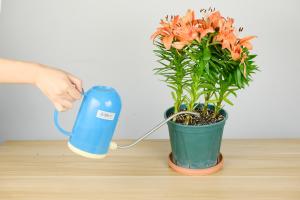Introduction
One of the most important aspects of maintaining healthy plants is providing them with adequate water. However, there are conflicting opinions on whether spraying water on plants is beneficial or harmful. In this article, we will explore the advantages and disadvantages of spraying water on plants.
Advantages of spraying water on plants
Spraying water on plants can provide numerous benefits, such as:
Keeps the leaves clean: When you spray water on the leaves of plants, it can help remove dust, dirt, and other debris, which can help improve the plant's ability to absorb sunlight and carbon dioxide.
Provides humidity: Plants thrive in a humid environment, and spraying water on them can help maintain a suitable level of humidity in the surrounding area.
Reduces insect infestations: Some insects, such as spider mites, thrive in hot, dry environments. Spraying water on plants can help reduce the risk of infestations by creating a more humid environment.
Disadvantages of spraying water on plants
While there are many benefits to spraying water on plants, there are also some potential drawbacks to consider:
Increased risk of disease: Standing water on the leaves of plants can create a favorable environment for fungi and other pathogens to grow, which can increase the risk of disease.
Can damage plants: In some cases, spraying too much water on plants can cause damage, particularly if the water is too hard. Hard water contains high levels of minerals, which can build up on the plant's leaves and cause damage over time.
Not effective in arid climates: Spraying water on plants may not be effective in arid climates where there is little humidity, as the water will evaporate quickly and not provide much benefit.
Conclusion
In conclusion, spraying water on plants can provide several benefits, such as keeping the leaves clean and reducing insect infestations. However, it's important to consider the potential drawbacks, such as the risk of disease and the potential to damage plants. Ultimately, the decision to spray water on plants should depend on factors such as climate, the type of plant, and the presence of any existing diseases or pests. When done correctly, however, spraying water on plants can be an excellent way to maintain healthy, thriving plants.

 how many times do yo...
how many times do yo... how many planted tre...
how many planted tre... how many pine trees ...
how many pine trees ... how many pecan trees...
how many pecan trees... how many plants comp...
how many plants comp... how many plants can ...
how many plants can ... how many plants and ...
how many plants and ... how many pepper plan...
how many pepper plan...





























